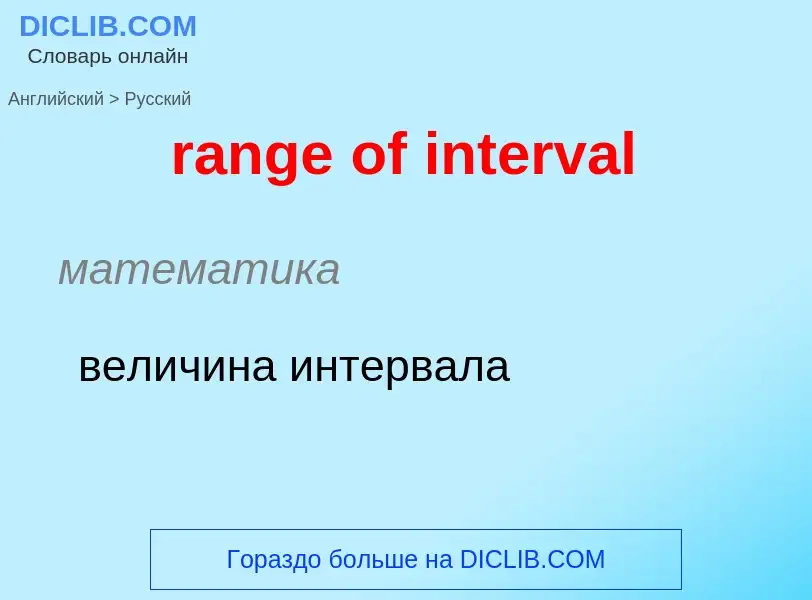Traducción y análisis de palabras por inteligencia artificial ChatGPT
En esta página puede obtener un análisis detallado de una palabra o frase, producido utilizando la mejor tecnología de inteligencia artificial hasta la fecha:
- cómo se usa la palabra
- frecuencia de uso
- se utiliza con más frecuencia en el habla oral o escrita
- opciones de traducción
- ejemplos de uso (varias frases con traducción)
- etimología
range of interval - traducción al ruso
математика
величина интервала
математика
вырожденный интервал
общая лексика
замкнутый интервал
Definición
Wikipedia
In mathematics, a (real) interval is a set of real numbers that contains all real numbers lying between any two numbers of the set. For example, the set of numbers x satisfying 0 ≤ x ≤ 1 is an interval which contains 0, 1, and all numbers in between. Other examples of intervals are the set of numbers such that 0 < x < 1, the set of all real numbers , the set of nonnegative real numbers, the set of positive real numbers, the empty set, and any singleton (set of one element).
Real intervals play an important role in the theory of integration, because they are the simplest sets whose "length" (or "measure" or "size") is easy to define. The concept of measure can then be extended to more complicated sets of real numbers, leading to the Borel measure and eventually to the Lebesgue measure.
Intervals are central to interval arithmetic, a general numerical computing technique that automatically provides guaranteed enclosures for arbitrary formulas, even in the presence of uncertainties, mathematical approximations, and arithmetic roundoff.
Intervals are likewise defined on an arbitrary totally ordered set, such as integers or rational numbers. The notation of integer intervals is considered in the special section below.


